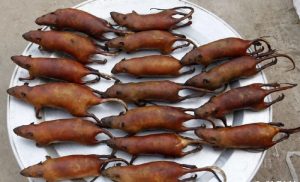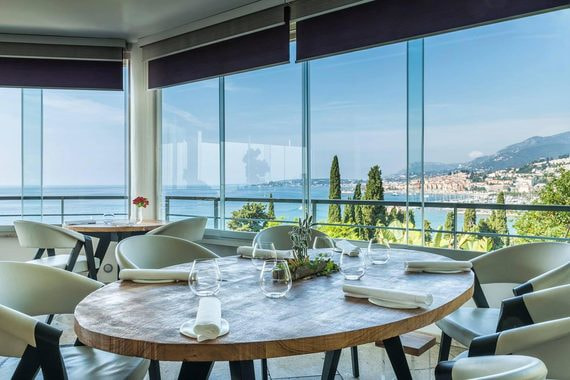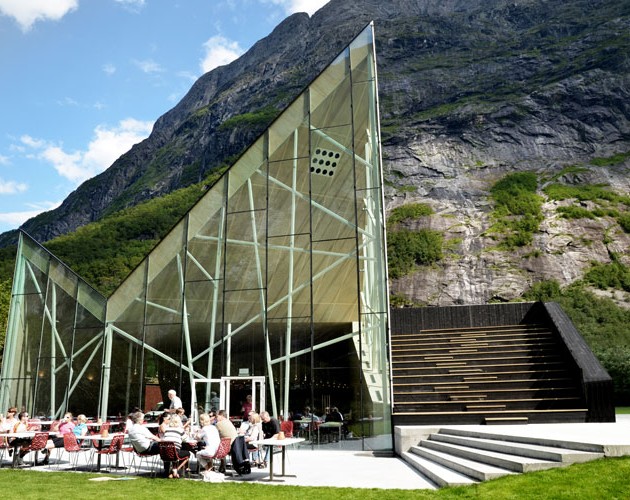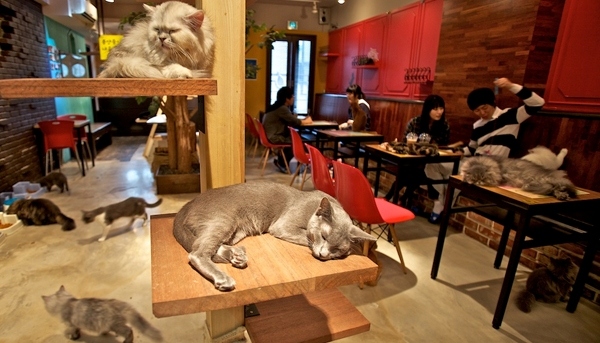Cats, rats and elephants: what Parisians had at the end of the 19th century
 The capital of France is famous for its gastronomy. It was in Paris that the first restaurants appeared, as well as many popular gourmet dishes. But there were Parisians and difficult periods. So, during the four months of 1870-1871. The basis of the Parisian menu was horsemeat, meat of dogs and rats. They even ate an elephant from the zoo.
The capital of France is famous for its gastronomy. It was in Paris that the first restaurants appeared, as well as many popular gourmet dishes. But there were Parisians and difficult periods. So, during the four months of 1870-1871. The basis of the Parisian menu was horsemeat, meat of dogs and rats. They even ate an elephant from the zoo.
In the summer of 1870, a bloody war broke out between the French Empire and the North German Union. German troops invaded France, Emperor Napoleon III went to the front and was captured in the battle of Sedan. A day later, on September 3, an uprising began in Paris. The September Revolution replaced the emperor and, once again, established the Republic. France was losing the war, and in Paris they were preparing for a siege. In anticipation of the blockade of the 2 millionth city, all products and fuel were taken from neighboring regions, herds of animals they could find were driven in.
On September 18, the Germans completely blocked Paris and besieged the city. They did not storm it, fearing their own excessive victims. German generals hoped that the hunger of his defenders would help them take the capital of France.
Just three weeks later, on October 10, the first signs of food problems appeared in the city when sheep and cattle were running out of food. The Parisians began to slaughter horses for meat. And although the French have long used horsemeat, pampered residents of the capital were already skeptical of it. However, even blood was consumed. It was collected in slaughterhouses and used to make puddings.
These days, a dinner was organized at the Central Sanitary Commission of Paris, which served horse meat soup with toast, boiled horse meat with cabbage, à la mode horse thigh, stewed horse side, horse meat roast fillet. The meal was finished with beef and cold sliced sausages from the same horsemeat. But this was only the beginning of the forced gastronomic “delights” of Parisians. So the people of Paris turned to alternative sources of calories.
On November 12, 1870, a kiosk was established on Rocheshoir Street, where, according to an eyewitness, a rather unusual meat was laid out:
“On the right side of the counter were several carcasses of large dogs … and cats … On the left on the counter were about a dozen rats on a tray. The young woman, all wrapped up, timidly approached them, and the little girl with her. They wanted to know the price of rats, and if there was enough money, buy one. ”
Another eyewitness of the siege expressed his opinion about new tastes: “Sobachatina is a good substitute for lamb,” while “a cat, as is known throughout the world, is often eaten instead of a rabbit.” Those who were richer could make a paste of fatty rats, because they cost 1.5-2 times more expensive per kilogram.
In November, they announced the closure of most of the famous cafes and restaurants in Paris, many of which were converted into cheap dining rooms, where even the poor could eat.
On Christmas Day 1870, a meal was held at the Voisin Restaurant. She became famous in history thanks to the menu. It was entitled “99 days of a siege”, and a rich wine list was also included. The first course of the menu is a donkey head stuffed with radishes, butter and sardines. There were two soups to choose from: red bean with croutons and an elephant broth. Also on the Voisin menu were cats, rats, a kangaroo in sesame, an antelope in truffle, and a wolf in deer gravy.
Most of these animals fell under the knife directly from the zoos, where they were already desperate to feed and save their pets. Caught under a knife and three elephants.



